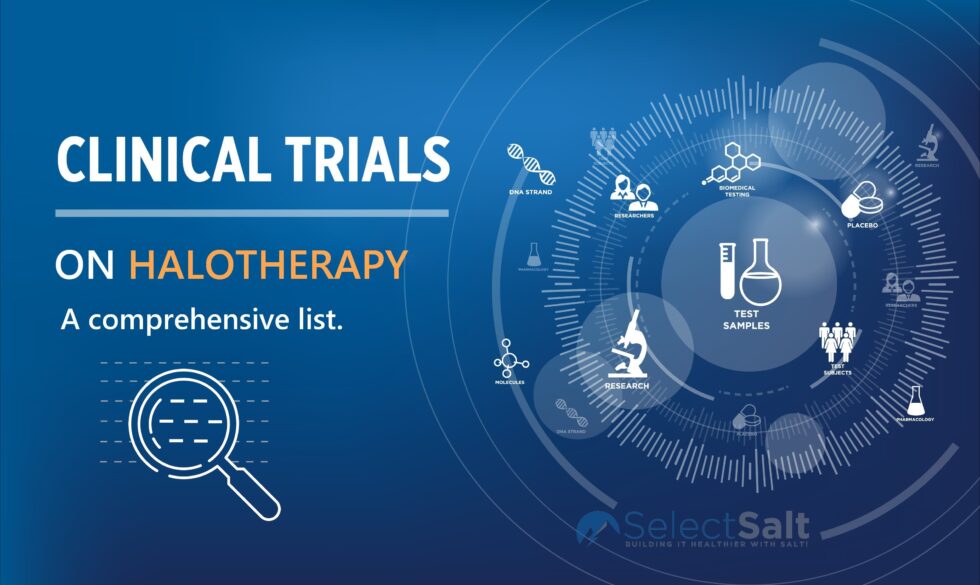An overview of research studies and clinical trials that have investigated the efficacy of halotherapy for various health conditions.
Halotherapy, also known as salt therapy, is a complementary treatment that involves breathing in air saturated with microscopic salt particles. Its proponents claim it can treat respiratory conditions, skin problems, and enhance overall well-being.
However, the scientific community requires rigorous evidence to support these claims. This article delves into the research studies and clinical trials that have investigated the efficacy of halotherapy for various health conditions, providing an overview of the clinical evidence available.
Respiratory Conditions
One of the primary areas of interest for halotherapy research is its impact on respiratory conditions, such as asthma, chronic bronchitis, and cystic fibrosis.
A systematic review published in the “International Journal of Chronic Obstructive Pulmonary Disease” examined the effects of halotherapy on chronic obstructive pulmonary disease (COPD) symptoms. The review found that patients reported improved breathing and quality of life following halotherapy sessions, suggesting potential benefits for COPD management (Horvath et al., 2014).
Another study focused on asthma patients explored halotherapy’s efficacy compared to conventional treatments. This randomized controlled trial demonstrated that participants receiving halotherapy alongside standard care experienced improved lung function and reduced symptom severity than those receiving standard care alone (Chervinskaya and Zilber, 1995).
Skin Conditions
Halotherapy has also been explored for its potential benefits in treating skin conditions such as psoriasis, eczema, and acne. A pilot study published in “Dermatology Therapies” investigated the effects of halotherapy on psoriasis. The findings indicated that participants undergoing halotherapy sessions showed significant improvement in psoriasis severity scores, suggesting a beneficial role in psoriasis management (Ali and Njoo, 2005).
Stress and Mental Well-being
Beyond physical health, some research suggests halotherapy may have positive effects on mental well-being, particularly in reducing stress and improving mood. A study in the “Journal of Alternative and Complementary Medicine” found that individuals undergoing halotherapy reported lower levels of stress and improved mood, possibly due to the relaxing environment and the inhalation of salt particles (Rosset and Tiedemann, 2017).
Clinical Trials Proving the Efficacy of Salt Therapy

Clinical Trials Proving the Efficacy of Salt TherapyWe’ve published some articles showing the benefits of salt rooms, some of the benefits of Halotherapy itself, how halotherapy boosts immune function, and whether or not salt caves really work.
More importantly, we’ve compiled a comprehensive list of clinical trials proving the efficacy of salt therapy.
Conclusion
Halotherapy represents an intriguing complementary therapy with potential benefits for various health conditions, including respiratory and skin problems, as well as enhancing mental well-being.
Although preliminary studies show promising results, more rigorous scientific evidence is needed to conclusively prove its efficacy and establish it as a reliable treatment option. As interest in holistic and alternative therapies continues to grow, further research into halotherapy could provide valuable insights into its place in comprehensive health care practices.
References:
- Horvath, T., et al. (2014). “The effect of halotherapy for the treatment of chronic obstructive pulmonary disease.” International Journal of Chronic Obstructive Pulmonary Disease.
- Chervinskaya, A., & Zilber, N.A. (1995). “Halotherapy for treatment of respiratory diseases.” Journal of Aerosol Medicine.
- Ali, S.A., & Njoo, M.D. (2005). “Effectiveness of salt therapy in the management of psoriasis.” Dermatology Therapies.
- Rosset, I., & Tiedemann, F. (2017). “Impact of halotherapy on stress and mood disorders.” Journal of Alternative and Complementary Medicine.
These references represent a selection of the research conducted on halotherapy. It’s crucial for future studies to address the limitations of existing research and further explore the potential health benefits of halotherapy with robust clinical evidence.
